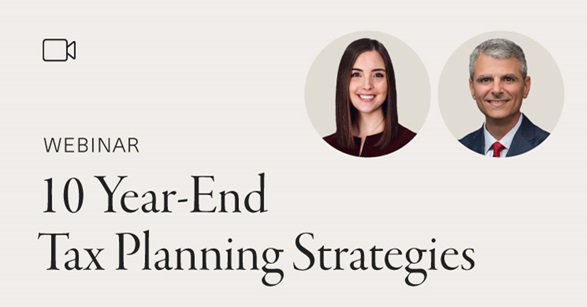- Running a CPA firm? Creating referral networks needs to be a firm-wide priority from the top down
- Winning quality referrals requires relationships built on trust and expertise
- Keeping track of referrals ensures you’re giving as much as you’re getting
Giving all clients extraordinary service is the goal of any CPA firm — or any professional services firm, for that matter. But the work of CPA firms isn’t limited to existing clients; having a strong handle on business development is key to ensuring the firm thrives.
“For any professional services firm, having a pipeline is mission-critical,” says Frank Balestreri, Consulting Partner-in-Charge at Sensiba San Filippo (SSF) Certified Public Accountants and Business Advisors. “If you don't have a pipeline, you can’t grow and provide opportunities for your staff.”
But when it comes to building that pipeline, CPA firms often make mistakes — like relying exclusively on senior partners to generate new business.
First Republic is proud to share tips from Balestreri on creating referral networks. We spoke to Balestreri about growing your network at any stage in your career, and making business development a firm-wide priority that cascades from the top down.
Building long-term relationships
Building pipelines is really about building relationships and, more importantly, trust with professionals (such as bankers, attorneys, and insurance professionals) who can refer qualified clients to the CPA firm. That’s why senior leaders in a CPA firm need to set realistic expectations for more junior professionals — making it clear that thinking long-term is critical when it comes to building referral pipelines.
For example, hosting (or co-hosting) networking events is an excellent way for CPA firms to facilitate introductions among organizations that could funnel referrals to one another. But one-off introductions do not help build pipelines. Many times professionals fail to follow up with new connections after meeting them, and remember, it takes common ground — and trust — to build referral-friendly relationships.
“It's unrealistic to think you're going to go to one of these (networking) events, and people are just going to hand you referrals,” says Balestreri. “That's not the way the business world works.”
“I would not want to refer one of my clients to somebody that I don't implicitly trust,” says Balestreri. “So if I went to one of those events and I met somebody for the first time, and a week later, they called me with a referral, I would be highly skeptical as to why they were doing that in the first place. Either it's not a legitimate referral because it's a company they don't know, and they're just trying to offer up a referral, or they are probably not doing justice to their client by referring them to someone that they don’t know.”
A good way to build the relationships that lead to quality referrals is to connect with professionals based on common interests — such as a shared love of the same sport or having kids in the same school. Finding reasons to spend time with an individual outside of a work environment helps both parties understand each other better and see one another’s “true colors” before bringing clients into the relationship. Building these relationships early on will significantly benefit those coming up through an organization as they mature in their career.
Showcasing trusted expertise
Another key to winning the trust of potential referral sources is to become known for your expertise. By publishing insightful content, hosting webinars and having an active social media presence, for example, a CPA at any level can become a commodity that people want to engage with, Balestreri advises. It can be a good way for someone in an organization to differentiate themselves, whether they’re a rising associate or established at a firm.
“You need to make yourself somebody that a referral partner wants to have their client talk to,” says Balestreri. “For me, the way I differentiated myself last year was diving deep into the Paycheck Protection Program (PPP). I hosted several webinars, and SSF was constantly publishing content, and that made people want to talk to me.”
“When a referral-type partner has a client that has an issue that they think you can solve, that's when they're going to start picking up the phone and say, ‘Hey, you need to talk to Frank because he's going to be able to answer your questions,’” says Balestreri.
Building a specialty that makes referral partners want to talk to you can then lead to additional business from referred clients.
“For us at SSF, we’ve seen a lot of add-on business where clients will come in, and some of these are new clients to the firm, and they say, ‘We enjoyed working with you so much through this process. We have this other issue over here. Can you help us with that?’ And it starts to steamroll at that point,” says Balestreri.
Maintaining a tracking effort
Since securing referrals needs to be a firm-wide priority, there should be a strategy — and a scorecard — behind the effort. Keeping track of inbound and outbound referrals helps professional services firms ensure they’re giving as much as they’re getting when it comes to their relationships with referral sources.
SSF, for example, uses a customer relationship management (CRM) system to track where their referrals are coming from and what clients they’re referring to others. Maintaining this tracking system helps them 1.) ensure parity in their referral relationships, and 2.) use a critical eye to look at why certain relationships are fruitful and others aren’t.
“It's important to know who's giving you business and who isn't,” says Balestreri. “For us, we were investing a lot of money into certain relationships that weren't putting anything back to us in return. When that happens, you’ve got to ask, ‘Why is that? Do they not know us? Do they not trust us? Or are they just giving their business to some other firm?’”
If a referral source gives their business to another firm, it could mean the other organization may be more suited to their clients’ needs. After all, part of being a good partner for receiving referrals is understanding your ideal customer. The same idea is true for making outbound referrals, as well.
“You want to make sure you've got enough partners in your network so that when the right type of client comes up, you can find somebody for them,” says Balestreri.
By having the whole firm focus (from the top down) on building lasting referrer relationships, any CPA firm can build out the kind of network that makes them a trusted partner to many.
To learn more about scaling your CPA practice, read posts by Frank Balestreri on the SSF blog. For information on how First Republic can help you, contact us.
The views of the interviewee of this article do not necessarily represent the views of First Republic Bank. This information is governed by our Terms and Conditions of Use.




